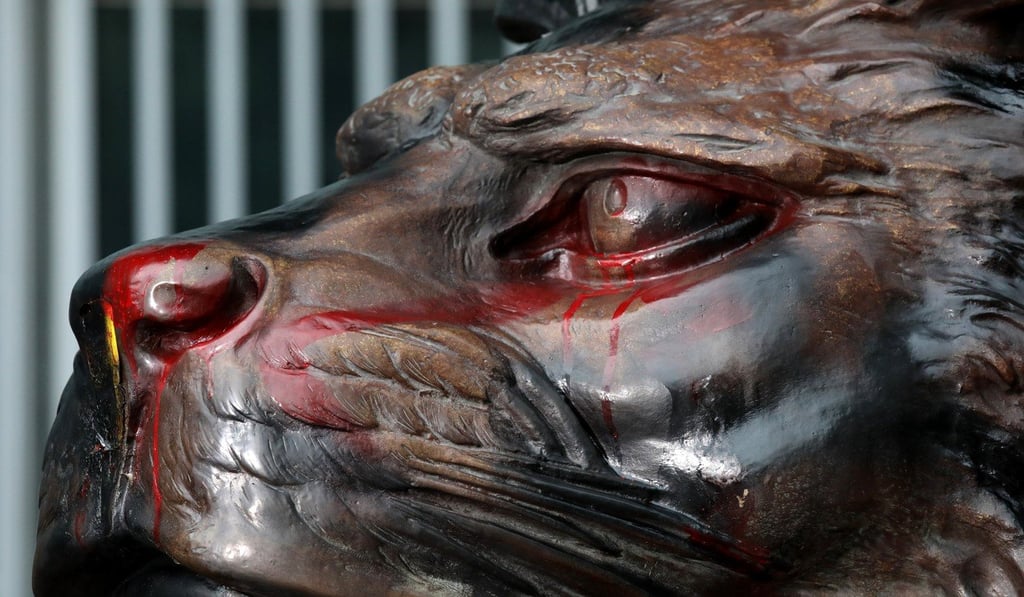Explainer: HSBC, Spark Alliance and the law behind the latest fury in Hong Kong protests
- Account associated with Spark Alliance was closed in November upon instruction from customer, HSBC says, rejecting links to crackdown by Hong Kong police
- Closure preceded a notification in December by enforcement agency on handling of fund balance

HSBC Holdings, which traces its origin in Hong Kong to March 1865, is the latest institution to be embroiled in the city’s worst political crisis.
What appears to be a routine regulatory decision to close a client’s corporate banking account has triggered an ugly backlash as its outlets became the latest target of vandalism after seven months of anti-government protests.
The client Prime Management Service Limited, though, is no ordinary customer. The account is said to be linked to Spark Alliance HK, which raises money from crowdfunding to help grease the wheel of protests since 2016. It also posted bail for protesters arrested during the opposition to the ill-fated extradition bill for much of last year, according to its Facebook page.
On the eve of Christmas, HSBC’s branch in Mong Kok was smashed while facilities on Hennessy Road outlet were damaged as the city ushered in the new year. Even a pair of iconic pre-war lion sculptures were not spared. All told, almost a dozen branches belonging to HSBC and its majority-owned Hang Seng Bank were put out of action for several days.
The banking group has distanced itself from any linkages that its decision to close the account was tied to a crackdown by the Hong Kong police and the force’s move to freeze about HK$70 million (US$9 million) of its funds.

What happened